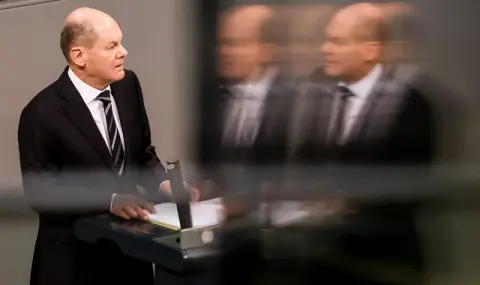German Chancellor Olaf Scholz commented on a statement by tech billionaire Elon Musk in his New Year's greeting address, Politico reports.
According to him, Musk's support for the far-right Alternative for Germany (AfD) party could also be seen as an attempt to influence the outcome of the early elections in Germany on February 23.
"You, the citizens, decide what will happen in Germany," Scholz said. It's not up to the owners of social media."
Although Scholz did not mention Musk by name, it was clear that he was referring to him. Over the weekend, Musk doubled down on his support for the AfD in an op-ed in the German newspaper Welt am Sonntag.
The endorsement caused a storm in Germany, with the government and politicians across the spectrum accusing Musk of trying to influence the outcome of the February election.
"Musk supports those who weaken Europe," said Germany's Vice Chancellor and Economy Minister Robert Habeck in his New Year's address.
In recent days, Musk has launched a series of attacks on leading German politicians while praising the AfD. In one post, he called Scholz "Oaf Schitz." In another, he called German President Frank-Walter Steinmeier an "anti-democratic tyrant".
Musk's hostility to German mainstream politicians and his affinity for the AfD could bode ill for Germany's next government. Musk is the most powerful adviser to US President-elect Donald Trump, and his views could have a major impact on the next White House's policies when it comes to Germany.
Germany's conservative alliance, led by chancellor candidate Friedrich Merz, is currently leading in opinion polls. Merz has suggested he could make "deals" with Trump if he wins the race.
The AfD has become increasingly extreme since its founding as a Eurosceptic party in 2013. Germany's Federal Intelligence Service classifies the party as a suspected extremist organization.
Musk, a tech billionaire and electric vehicle magnate, first endorsed the AfD two weeks ago. He has also recently endorsed several other European populist, right-wing politicians, such as Reform UK leader Nigel Farage and Italian Prime Minister Giorgia Meloni.
Sholz said in his New Year's speech that while the most extreme opinions and loudest voices get the most attention, "the vast majority of reasonable and decent people" will decide the outcome of the February election.
